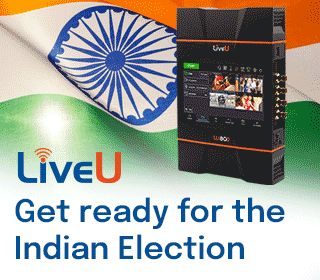Channel News
TRAI Impact: More HD Channels Coming To Cable Networks
The implementation of TRAI Tariff Order of 2017 from this month has increased monthly cable prices for many users, but it is also having a positive impact on the availability of premium and HD channels on several platforms.
The new rules give all cable operators the ability to receive and distribute any channel they want at transparent prices, without being arm-twisted by broadcasters into carrying all their channels.
Siti Cable in Delhi, part of the Essel Group, has added around 80 new channels, including close to 20 new HD channels after the new rules came into operation four days ago.
The channels added by Siti, a unit of Zee Group, include UTV HD, ESPN HD, FYI HD, BBC Earth HD and Aaj Tak HD. It has also added many South Indian channels.
Other cable networks across the country are also expected to follow suit soon.
TRAI impact
Even though channels became expensive for the end-consumer, they have become more affordable and accessible to smaller cable operators across the country after the roll-out of TRAI’s new tariff scheme.
Earlier, cable networks had to pay as much as Rs 50 per subscriber for some of these channels.
However, under the new scheme, the dealer prices have been brought down to Rs 17 or less, and that too, only for activated connections.
The new TRAI tariff rules also ban channel owners from charging higher prices from smaller networks insist on equal pricing for all cable and DTH networks.
Earlier channel owners would give — or be forced to give — their channels at very low prices to big networks like DTH players and cable MSOs like Hathway, Den and others.
However, when a smaller cable operator or MSO approached the same channel owners for signal, they would quote much higher prices as the smaller operators did not have to negotiate power due to their smaller subscriber base.
In other words, if Tata Sky refused to take Sun TV’s channels, it would hurt Sun’s advertising revenue substantially. But if a small cable operator in Ujjain refused to take Sun TV’s channels, it would hardly make a difference.
This is also a reason why small cable operators were forced to take their feeds from large cable operators like Den and Hathway or were forced to come together into one big network.
Level ground
But the new TRAI regulations have leveled the playing field between large players and small, one-city networks.
With open and transparent pricing, a small cable operator can download the relevant form for getting the TV signal, fill it up and send it to the channel headquarters. The channel owner is automatically forced to share the signal, unlike earlier when there would be a series of negotiations with each party trying to extract the maximum amount from the other.
This change could, in coming days, also encourage many one-city or regional cable networks to set up their own ‘head-end’ or signal collection center, instead of depending on bigger players or MSOs.
This trend could also gain some encouragement from the ongoing mergers and acquisitions in the MSO industry that have made some cable operators uncomfortable.
This is somewhat similar to the conditions that existed during the first wave of digitization when small cable operators were either forced to join together or become part of big operators as they did not have the technical know-how to convert their networks from analog to digital.
Regional channel availability
The new rules will also improve the availability of regional channels, whose adoption so far faced many artificial obstacles outside their core markets.
For example, if a Delhi-based operator wanted to take only two channels from a big South Indian channel group for catering to a small number of South Indian population in Delhi, it would have had to pay very high rates as channel groups would give discounts only if all their 10 or 20 channels are carried.
However, under the new scheme, such practices are in the process of being phased out. As a result, if a cable operator in Ludhiana wants to buy only one or two Tamil channels and not the whole bouquet, he would get access to just one or two.
Similarly, a small operator in a village area could now subscribe to just one or two premium or sports channels, like Start Sports and ESPN, by paying Rs 17 each per customer, instead of buying a whole bouquet that his rural customers may not be able to afford.―Ultra News









You must be logged in to post a comment Login